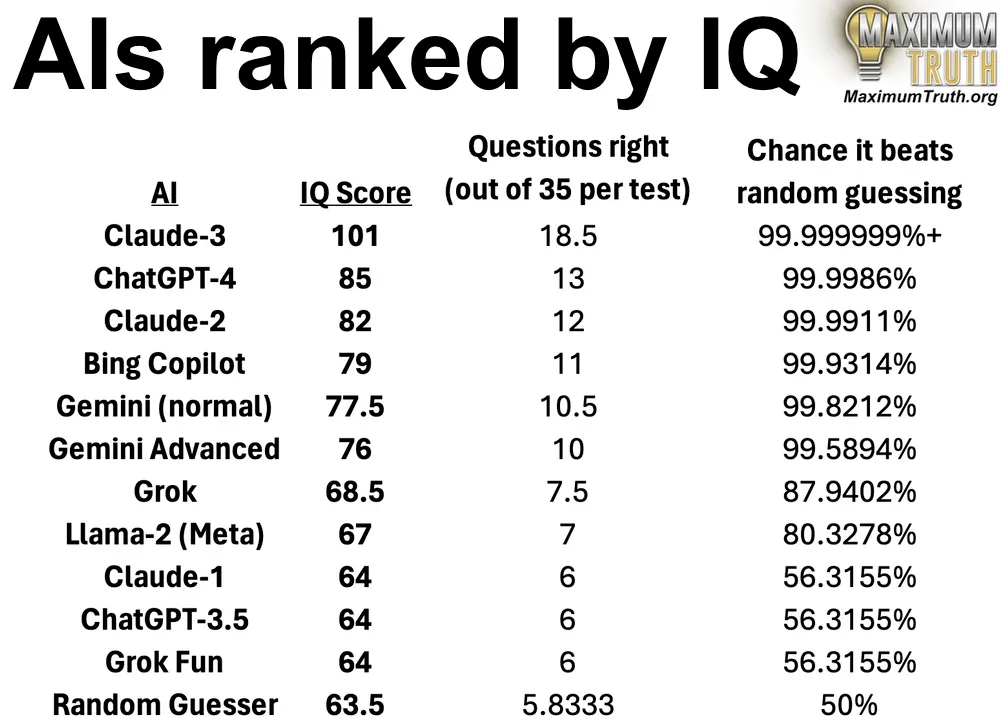Anthropic's Claude 3 Hailed as Most "Human-Like" AI, Whatever That Means | BitsWithBrains
One recent approach was to administer a verbal IQ test adapted from the Norway Mensa matrix-style test to several AI systems, including Claude-3. The main finding was that Anthropic's Claude AI passed the 100 IQ threshold for the first time, scoring an estimated IQ of 102 based on getting 13 out of 35 questions correct on average across two test administrations. Previous versions of Claude and other AI systems fell below 100 IQ. GPT-4 scored 85. Using this metric, Claude-3 does represent a new leap in AI.Claude.ai
Anthropic PBC is a U.S.-based artificial intelligence (AI) startup public-benefit company, founded in 2021. It researches and develops AI to "study their safety properties at the technological frontier" and use this research to deploy safe, reliable models for the public.[5][6][7] Anthropic has developed a family of large language models (LLMs) named Claude as a competitor to OpenAI's ChatGPT and Google's Gemini.[8]
Anthropic was founded by former members of OpenAI, Daniela Amodei and Dario Amodei.[9] In September 2023, Amazon announced an investment of up to $4 billion, followed by a $2 billion commitment from Google in the following month.[10][11][12]
